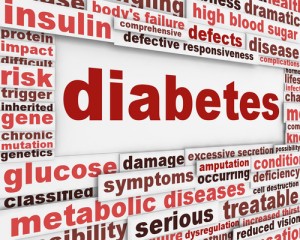If you are suffering from diabetes, there are often signs and symptoms. Remember that you may not suffer any symptoms, which is why you should visit your doctor regularly for routine check-ups and exams.
Symptoms in Women
12.6 million women in the United States have diabetes. If you notice any early warning signs, consult with a medical expert immediately. If you have scars that will not heal, blurred vision, exhaustion or fatigue, excessive hunger and thirst, you may be suffering from diabetes.
These glaring symptoms may seem small, but they are not. Ignoring these symptoms and failing to receive treatment can lead to a stroke or death.
Symptoms in Men
As of 2012, approximately 13 million men in the United States were living with diabetes. Although most of the symptoms in females also apply to males, there are some symptoms that are specific to males only. Those symptoms include:
- Episodes of Thrush Around Genitals (Episodes that are recurrent)
- Loss of Muscle Mass (Which leads to reduced strength)
- Itching of the Penis (Or Around the Penis)
- Erectile Dysfunction
Symptoms in Individuals Under 20
According to the American Association of Diabetes, 215,000 youth under the age of 20 have diabetes. Children who suffer from Type 1 diabetes generally develop their symptoms quickly. Common symptoms for children are:
- Irritability
- Fatigue
- Weight Loss
- Increased Urination
- Blurred Vision
- Yeast Infection (for females)
Children who are suffering from Type 2 diabetes will have the same symptoms as children with Type 1 diabetes, in addition to these other symptoms:
- Areas of Darkened Skin
- Frequent Infections
- Slow Healing Scars or Sores
Symptoms for Infants:
According to Boston Children’s Hospital, 1 in 30,000 infants will have diabetes insipidus. This type of diabetes is caused by tumors, brain injury, family hereditary, and damage to glands; amongst other reasons. This case of diabetes is rare, but it can occur. If you notice any of the symptoms listed below, consult with a physician immediately.
- High Fevers
- Irritability
- Poor Feeding
- Failure to Grow
Misconception
You may not have any of the symptoms listed above, but that does not mean you do not have diabetes. This is the reason millions of people are living with diabetes and have not been diagnosed. Most individuals are not aware that they have diabetes until the disease has progressed. Remember that diabetes causes serious damage to your body during its early stages. Routine testing with your doctor can be done to determine if you have diabetes. Failing to do so can lead to critical illnesses.
I have the symptoms, but do I have diabetes?
You will need to see a medical expert if you are having any of these symptoms. Only a doctor can diagnose you with diabetes.
To learn more about diabetes testing and diagnosis, click here.
Getting Help
If you have any of these symptoms, you should consult your doctor immediately. If you fail to seek treatment for this disease, you can cause long-term damage to your heart, brain, and liver. A medical expert can explain your treatment options to you, including medication and healthy lifestyle tips.
Your doctor can also give you a referral to a medical therapist, as well as a listing of local diabetes support groups. This kind of support can make all the difference in learning to life a happy and healthy life with your diagnosis.
With medical intervention and a significant diet change, diabetes can be reversible.
Speak with your doctor about your symptoms to determine whether or not you are in the early stages of diabetes and about your genetic factors and diet change. With the right combination of treatment, diet and genetic factors you may be able to eliminate all symptoms of diabetes.
References
“Diabetic Basics.” American Diabetes Association. Retrieved from http://www.diabetes.org/diabetes-basics/?loc=GlobalNavDB. Accessed on August 2, 2013.
“Types of Diabetes.” International Diabetes Federation. Retrieved from http://www.idf.org/types-diabetes/. Accessed on August 2, 2013.
“Diabetes Insipidus.” Boston Children’s Hospital. Retrieved from http://www.childrenshospital.org/az/Site709/mainpageS709P1.html. Accessed on August 2, 2013.
“Can You Reverse Type 2 Diabetes?” WebMD. Retrieved from http://diabetes.webmd.com/features/reversing-type-2-diabetes. Accessed on August 7, 2013.
 Unanswered Questions?
Call Our Helpful Staff at
866 418 8004
Unanswered Questions?
Call Our Helpful Staff at
866 418 8004

